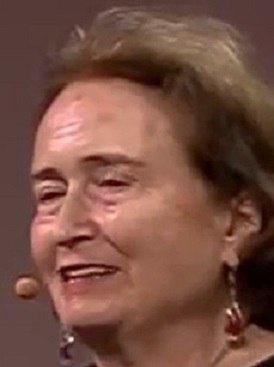Denise Kandel facts for kids
Quick facts for kids
Denise Kandel
|
|
|---|---|
 |
|
| Born |
Denise Bystryn
February 27, 1933 Paris, France
|
| Nationality | American |
| Alma mater | Bryn Mawr College BA Columbia University MA, PhD |
| Known for | Longitudinal studies on the sequence of first-time use of various legal and ... |
| Spouse(s) | |
| Children | 2 |
| Scientific career | |
| Fields | Social medicine, epidemiology |
| Institutions | Sociomedical Sciences and Psychiatry at Columbia University and Department of Epidemiology of ... at the New York State Psychiatric Institute |
Denise Kandel (born February 27, 1933) is an American scientist who studies health and society. She is a professor at Columbia University and works at the New York State Psychiatric Institute.
Kandel is famous for her research on how young people make choices about their health. Starting in the 1970s, she led long-term studies that followed teenagers over many years. These studies looked at the order in which young people might try different substances, like tobacco or alcohol. This work helped other scientists understand the influences on teenagers' decisions.
Contents
Early Life and Family
Growing Up in France
Denise Bystryn was born in Paris, France. Her Jewish parents had moved there from Poland in the 1920s. Her father, Iser, was a chief engineer at a truck factory. Her mother, Sara, was a skilled hat and corset maker. Denise had a younger brother, Jean-Claude, who later became a doctor in the United States.
Denise's childhood was happy until World War II began. In 1941, when she was eight years old, her father was arrested by the Nazis because he was a "foreign Jew." He was sent to an internment camp called Beaune-la-Rolande. He managed to escape and reunite with his family in southern France.
During the war, the family had to hide. Denise and her brother were often separated from their parents for safety. For a time, Denise lived and studied at a convent school. In 1949, after the war, her family moved to the United States to start a new life.
Moving to the United States
In New York City, Denise attended the Lycée Français de New York, a French-language school. She was a very bright student and finished high school quickly. At age 17, she started at Bryn Mawr College and earned her degree in just two years.
After college, she went to Columbia University to earn her PhD. There, she studied medical sociology, which looks at how social factors affect health. While at Columbia, she met Eric Kandel, a scientist studying the brain. They married in 1956 and had two children. Eric Kandel would later win the Nobel Prize in Physiology or Medicine in 2000.
Scientific Career
Studying Teenagers' Choices
In the 1960s, scientists became more interested in why young people make certain health choices. Kandel wanted to study how parents and friends influence teenagers. She planned a new research project to interview both high school students and their parents.
This project became a longitudinal study, which means she followed the same group of 1,325 people for many years. This allowed her to see how their choices and behaviors changed over time. She considered this study a major turning point in her career.
The "Gateway" Idea
Kandel's research looked at the order in which young people might try different substances. Her findings became connected with an idea called the "gateway hypothesis." This idea suggests that using a substance like tobacco might lead a person to try other harmful things later on.
However, Kandel was always careful to explain her findings clearly. She said that just because one thing happens before another, it doesn't mean the first event caused the second one. Her work encouraged more research to understand the complex reasons behind people's choices.
Awards
- 1985 – Senior Scientist Research Award from the National Institute on Drug Abuse (NIDA)
- 2002 – R. Brinkley Smithers Distinguished Scientist Award
- 2003 – Prevention Science Award
Selected Books
- Youth in two worlds (1972)
- Stages and Pathways of ... Involvement: Examining the Gateway Hypothesis (2002)
 | Anna J. Cooper |
 | Mary McLeod Bethune |
 | Lillie Mae Bradford |

